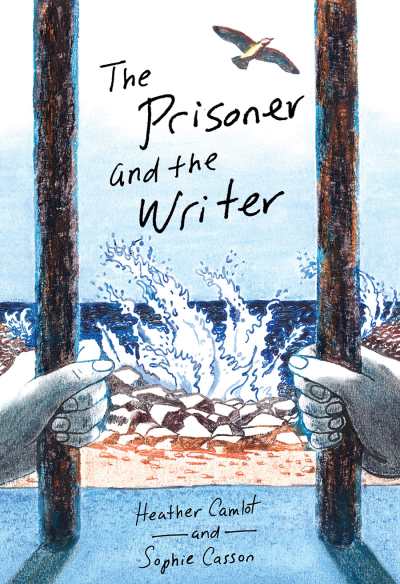Reviewer Erika Harlitz-Kern Interviews Heather Camlot, Author of The Prisoner and the Writer

Just thinking about the hundreds of millions of crimes—murder, robbery, assault, you name it—committed against European Jewry over a score of centuries is madness inducing, and made worse by the fact that there’s not a lot of notable examples of anyone coming to the defense of targeted Jews. Neighbors shut their windows to dampen the screams, passersby crossed the street to avoid the disturbance, cops refused to investigate.
In 1898, French novelist Emile Zola said ENOUGH! with the silent complicity, and his support for Jewish military officer Alfred Dreyfus brought his country to its knees. Zola is an inspiration for all of us who’d like to make the world a better place.

In The Prisoner and the Writer, Heather Camlot and illustrator Sophie Casson bring the Dreyfus Affair to middle grade readers. Foreword’s Erika Harlitz-Kern tagged the book with a coveted star in her review for the September/October issue and the stars lined up for Heather and Erika to hook up for the following conversation.
The Prisoner and the Writer is written in commemoration of the 125th anniversary of French author Emile Zola’s text “J’Accuse…!” “J’Accuse…!” is a powerful statement in the defense of Alfred Dreyfus, a Jewish man wrongfully convicted of espionage, and at the center of what has become known as the Dreyfus Affair. To start things off, could you explain briefly what the Dreyfus Affair was about?
In 1894, French Captain Alfred Dreyfus was wrongly accused of supplying military secrets to the Germans, convicted of treason, and sent to Devil’s Island for life. There was no credible evidence against him, but he was the only Jewish officer in the French Army high command and became the target of an intricate web of lies and deceit. The Dreyfus Affair, as the scandal came to be known, tore France in two, bringing to the fore politics, national identity, religion, and military power. There were attacks in the newspapers and attacks in the streets and with the publication of “J’Accuse…!” in 1898 soon there was international outcry. Alfred Dreyfus was exonerated in 1906, but the impact and repercussions of the Affair live on.
Why is it important for us to know about the Dreyfus Affair and Emile Zola’s text? Why do you think it is important for children to know about it?
Even though the Dreyfus Affair occurred over one hundred years ago, similar incidents happen everyday: we see the quick rise of tensions, divisions, mob mentality, and discrimination in society. We see people being mistreated, injured, killed because of their skin color, religion, gender, ability … Fortunately, we also see people fighting for justice and equality. We see people like Emile Zola, who stood up and spoke out for Alfred Dreyfus, a man he had never met and did not know. “J’Accuse…!” represents one moment in time when man defended man simply because it was the right thing to do. That’s a lesson we all need to be reminded of.
I really enjoyed the illustrations by Sophie Casson. I like how they highlight specific details and how these details reflect what is important in the text on the same page. I was wondering if you could tell me a little bit about what it was like working with Sophie? What your work process was like, that kind of thing.
Sophie is so incredibly talented and she did an amazing job on The Prisoner and the Writer! But to be honest, we never actually spoke during the project. We sent a few notes through our editor/publisher, Karen Li, during various stages of the illustration process; I collected a few photos and illustration notes, she passed along some important word changes, for example. But the illustrations are all Sophie! That said, we’ve talked a number of times after the project and discovered we have family cottages not too far from each other.
Is there anything in particular that you would want your readers, especially the children who read this book, to take with them after they finish reading the story?
I would love children to look around their world and if they see injustice, to stand up and speak out, to try to make a difference in their lives and the lives of others. I know that can be really hard and takes a lot of courage. Here’s another ask: I would like readers to understand that the information they hear, see, and read in the media may be biased or even completely fake. Just like during the Dreyfus affair, certain news sources may intentionally mislead, and the best defense for children and adults alike is to ask questions and check out multiple reports to make up their own minds.
Erika Harlitz Kern
